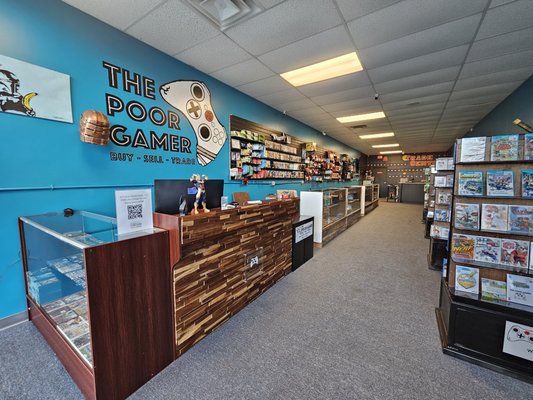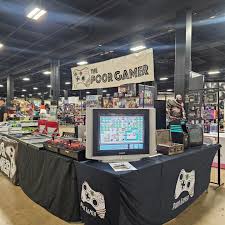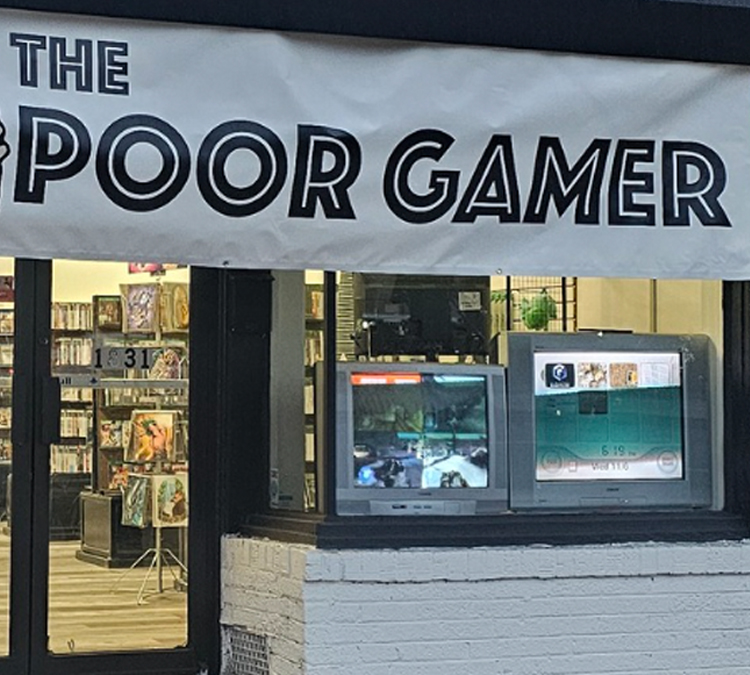Behind every great business is a story most people never hear. For Matthew Bates, that story began long before Poor Gamer ever opened its doors. It started in a teenage job at a video game store—one that left him with two things: a love for games and a long list of things he knew he could do better.
Fast forward a few years, and what began as a mobile game brand has become something much bigger. Poor Gamer is now a twice-awarded “Best in South Carolina” game store, with a passionate local following, a sleek online presence, and a fiercely loyal community. And it’s still just the beginning.
Building Something Real in 45 Days
Most businesses take months—if not years—to get off the ground. Matthew and his wife opened Poor Gamer in just 45 days.
Why the rush? Because when Matthew gets an idea, he moves. With over a decade in the IT world—including work for heavyweights like Duke Energy and Ford Motors—he’s no stranger to building systems fast. That ability to turn thought into action has been a constant through every chapter of his story.
Before the game store, there was photography. Then live streaming powerlifting events. All under the Poor Gamer name. Each pivot, each step, taught him something new. But when the chance came to open his own storefront, Matthew knew: this was the one.

A Game Store That Gets It Right
Walk into Poor Gamer, and you’ll feel it immediately: this isn’t your average strip-mall trade-in spot. It’s clean. Organized. Honest.
Matthew has made it a point to fix the things that frustrate gamers—offering fair trade-in values, expert scratch disc and console repair, and the kind of customer service that feels like talking to a friend who actually knows their stuff.
That’s rare in an industry that, in Matthew’s words, often feels “held together with duct tape.” It’s one reason why their store has consistently earned recognition—and why customers trust them to take care of gear they love.
Liberty Tech: Cleaning Up the Industry’s Mess
Even as Poor Gamer grows, Matthew hasn’t left his tech roots behind.
In fact, he’s launching a second company: Liberty Tech, a boutique software and IT consulting firm that already serves small business clients and events like Southeast Game Exchange. Many of his projects involve “rescuing” businesses from bad dev work—something he’s seen far too often.
“I’ve had clients tell me their old developer said something couldn’t be done,” Matthew explained. “I usually fix it in a week.”
That blend of confidence and humility is Matthew’s signature. he’s not trying to be flashy. He’s just really good at what he does.
One of Liberty Tech’s first major projects? A proprietary trade-in and repair system built in-house for Poor Gamer—designed to be so solid, other stores will want to license it. And once they see it in action, they probably will.

Eyes on the Horizon: Expansion, Franchising, and What’s Next
Matthew is at a pivotal moment. Poor Gamer could easily become a franchise-ready brand, and he’s weighing whether to keep growth in-house or open the door for others to bring the brand to new cities.
Either way, he’s laying the groundwork. That means refining systems, sharpening operations, and making sure everything scales the right way, not just the fast way.
And while Poor Gamer is the flagship, Matthew sees Liberty Tech as the engine that will help fuel expansion, fund new ideas, and allow both businesses to support each other long-term.

